
An epistolary novel is a novel written as a series of letters between the fictional characters of a narrative. The term is often extended to cover novels that intersperse documents of other kinds with the letters, most commonly diary entries and newspaper clippings, and sometimes considered to include novels composed of documents even if they do not include letters at all. More recently, epistolaries may include electronic documents such as recordings and radio, blog posts, and e-mails. The word epistolary is derived from Latin from the Greek word epistolē, meaning a letter (see epistle). This type of fiction is also sometimes known by the German term Briefroman or more generally as epistolary fiction.
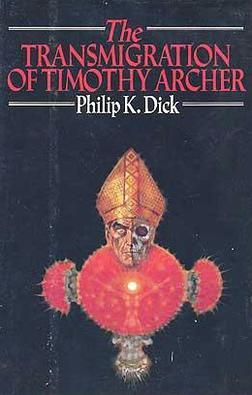
The Transmigration of Timothy Archer is a 1982 novel by American writer Philip K. Dick. As his final work, the book was published shortly after his death in March 1982, although it was written the previous year.

Of Mice and Men is a 1937 novella written by American author John Steinbeck. It narrates the experiences of George Milton and Lennie Small, two displaced migrant ranch workers, who move from place to place in California in search of new job opportunities during the Great Depression in the United States.
A first-person narrative is a mode of storytelling in which a storyteller recounts events from that storyteller's own personal point of view, using first-person grammar such as "I", "me", "my", and "myself". It must be narrated by a first-person character, such as a protagonist, re-teller, witness, or peripheral character. Alternatively, in a visual storytelling medium, the first-person perspective is a graphical perspective rendered through a character's visual field, so the camera is "seeing" out of a character's eyes.

A story within a story, also referred to as an embedded narrative, is a literary device in which a character within a story becomes the narrator of a second story. Multiple layers of stories within stories are sometimes called nested stories. A play may have a brief play within it, such as in Shakespeare's play Hamlet; a film may show the characters watching a short film; or a novel may contain a short story within the novel. A story within a story can be used in all types of narration including poems, and songs.
Narration is the use of a written or spoken commentary to convey a story to an audience. Narration is conveyed by a narrator: a specific person, or unspecified literary voice, developed by the creator of the story to deliver information to the audience, particularly about the plot: the series of events. Narration is a required element of all written stories, presenting the story in its entirety. It is optional in most other storytelling formats, such as films, plays, television shows and video games, in which the story can be conveyed through other means, like dialogue between characters or visual action.

Shatterglass, a novel by Tamora Pierce, is the fourth book in The Circle Opens series. It takes place four years after the Circle of Magic series.
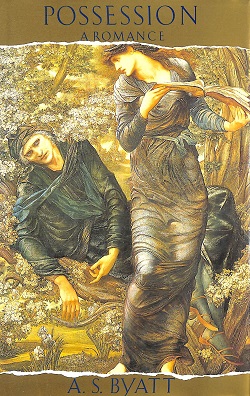
Possession: A Romance is a 1990 best-selling novel by English writer A. S. Byatt that won the 1990 Booker Prize for Fiction. The novel explores the postmodern concerns of similar novels, which are often categorised as historiographic metafiction, a genre that blends approaches from both historical fiction and metafiction.
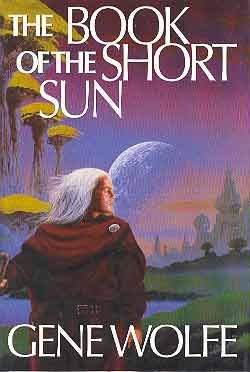
The Book of the Short Sun (1999–2001) is a series of three science fantasy novels or one three-volume novel by the American author Gene Wolfe. It continues The Book of the Long Sun (1993–1996): they share a narrator and Short Sun recounts a search for Silk, the Long Sun hero. The two works are set in the same universe as The Book of the New Sun series that Wolfe inaugurated in 1980 and the Internet Speculative Fiction Database (ISFDB) catalogs all three as sub-series of the "Solar Cycle", along with some other writings.
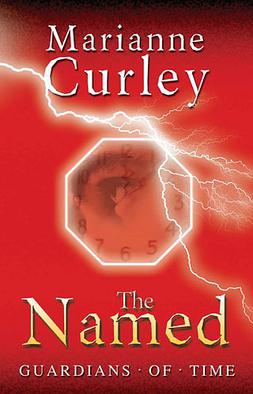
The Named is a fantasy novel written by Marianne Curley. The first novel in the Guardians of Time Trilogy, it follows Ethan, a member of The Named, and his new apprentice, Isabel, who he is training under the guidance of his mentor Arkarian.
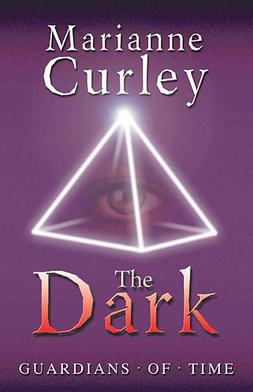
The Dark is a fantasy novel written by Marianne Curley. It is the second book in the Guardians of Time Trilogy.
Fiction writing is the composition of non-factual prose texts. Fictional writing often is produced as a story meant to entertain or convey an author's point of view. The result of this may be a short story, novel, novella, screenplay, or drama, which are all types of fictional writing styles. Different types of authors practice fictional writing, including novelists, playwrights, short story writers, radio dramatists and screenwriters.

Michael Mallory is a writer on the subjects of animation and post-war pop culture, and the author of the books X-Men: The Characters and Their Universe, Universal Studios Monsters: A Legacy of HorrorThe Science Fiction Universe and Beyond, and Essential Horror Movies. As an animation and film historian he has written over 600 articles, frequently for Variety, the Los Angeles Times and Animation Magazine, and has been featured in documentaries and DVD extras about animation. He co-authored the memoirs of animation legend Iwao Takamoto, which were published in 2009 as Iwao Takamoto: My Life with a Thousand Characters. He has also written the script for the annual Annie Awards ceremony, the Oscars of the animation industry, since the mid-1990s.

Billiards at Half-Past Nine is a 1959 novel by the German author Heinrich Böll. The entirety of the narrative takes place on a day in the autumn of 1958, with flashbacks, and characters' retellings from memory by the characters. It focuses on the Faehmel family's history, from the end of the 19th century, until that day; it largely reflects the opposition of the author to the period of Nazism, as well as his aversion to war in general.
Guardians of Time is a trilogy of novels written by Marianne Curley. The plot of the trilogy consists of the Guardians of Time, trying to protect the past, present, and future by traveling into the past to thwart their enemies, and the Order of Chaos, who are trying to change past events to give themselves more power.
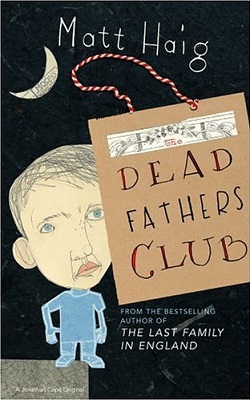
The Dead Fathers Club is a 2006 novel by Matt Haig. The book was published in the United Kingdom by Jonathan Cape and in the United States by Viking Press. The story is a retelling of William Shakespeare's Hamlet, and thus an example of intertextuality.
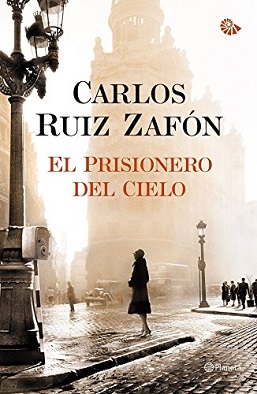
The Prisoner of Heaven is a 2011 book written by Carlos Ruiz Zafón. Originally published in Spanish, it was later translated to English by Lucia Graves. This is the third novel in the series "The Cemetery of Forgotten Books" written by the author.

From the Notebooks of a Middle School Princess is a 2015 children's novel written and illustrated by Meg Cabot and a spinoff of the author's young adult fiction series, The Princess Diaries. The book, released on May 19, 2015 through Feiwel & Friends, is the first in the series of the same name From the Notebooks of a Middle School Princess. It follows Olivia, a biracial 12-year-old who finds out she is the paternal younger half-sister of Princess Mia Thermopolis.

Treasure Hunters is a children's adventure novel written by James Patterson with Chris Grabenstein and Mark Shulman. It is the first book in the Treasure Hunters series. It was published in 2013.

Hello, Universe is a 2017 novel written by Erin Entrada Kelly. The novel is told from the perspectives of four middle school students as one of them becomes trapped in a well. Hello, Universe received the 2018 Newbery Medal.
















